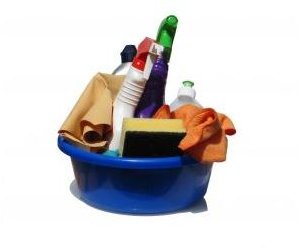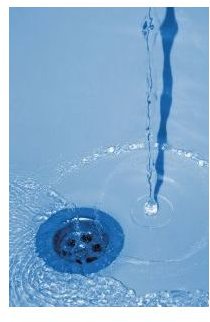Sample Business Plan: For Cleaning Business, Residential or Commercial
When you want to set up a professional cleaning business, you need to write a business plan. There are some vital parts of a business plan you should know about. This sample business plan for cleaning businesses will guide you through writing your own one.
The Front Page
Write your name and the name of your business, if applicable, in big letters on this page. Maybe you can write some words about your business as well.
Table of Contents
The second page should be the table of contents with page numbers.
What Is Your Business?
Describe your business idea as short and comprehensive as possible. The reader of your business plan should think, “Wow, this idea sounds good, it can work.”
You should state here whether you plan to clean only for private households or for companies as well.
Marketing
Describe your marketing strategy.
With a cleaning business, you will not have planned to do TV spots or something similar because you will not have a great marketing budget. You still need marketing. Your most important marketing factor will probably be word of mouth marketing. Satisfied clients recommend you to their friends, and they recommend you to their friends, and so on. However, you need ideas on how to acquire your first clients. Possible ways can be newspaper ads, fliers, or notes posted at your local supermarket.
Make sure this part of your business plan shows realistic marketing strategies, as much of your success at banks and other institutions will depend on it.
Investment Plan
List necessary investments to be made before starting your business and explain why you need these investments in a few sentences. For a cleaning business, realistic investments might be a car that is big enough to transport your cleaning equipment and, of course, your cleaning equipment.
Turnover Forecast
This is one of the most difficult parts. You have to make a realistic forecast of your turnover for the next two or three years. The best outline for this is a list with two columns. Begin with your net turnover and deduct all your business costs. At the end of each year’s forecast, you should have your net profit.
Now let us come to the difficult part: How can you know how much you will earn in the future? You cannot know, but you have to guess if you want to write a business plan.
The best approach begins by making notes on a different sheet of paper. Begin with day zero, the day you start your business. Assume that out of a hundred who see your advertisement approximately one person is interested. Maybe every fourth of those hires you for a trial job. If you assume that one thousand people read your advertisement or flyer in the first week, that makes two or three clients to begin with. Maybe one of the three clients recommends you to a friend or neighbor. If you further assume that maybe every second or third client requests your work regularly after the first trial, you have a point from which you can guess your net income.
Do not forget that your working time is limited!
(Image Credit: sxc.hu, down the drain, by jveran2001
Liquidity Forecast
Make a list of all your private and business income and expenses. Sort it, beginning with private income, then business income, then private expenses, and at last business expenses. Sum up your total income and total expenses for each month. The liquidity forecast should cover the first three or more months after starting your business. A rule of thumb is: Cover every month until your total sum is positive.

Credits and credit rates need to be listed, too. The sense behind this forecast is that banks and other institutions want to know if you are able to finance your living in the beginning. Whether you do this by income or credit has no relevance.
Typical business expenses for your cleaning business will include cleaning materials, car expenses, insurances, and marketing.
Vision / Plans for the Future
This part is dedicated for your “look into the future.” Write down where you see your cleaning business in three or four years. Will you have expanded by then–maybe hired some cleaning staff? Or will you still do everything as a sole trader? You need not write much, maybe half a page up to a whole page.
CV
Your CV or resume belongs to your business plan, too. It shall help to determine if you have the skills and experience that are necessary to succeed in your field of business. List everything that could be relevant to cleaning, managing, marketing and accounting.
(Image Credit: sxc.hu, clean home 2, by lusi)
Further Tips
I hope this sample business plan for cleaning businesses helps you writing your business plan. Be as prepared as you can be, meaning that you should know beforehand which expenses you will approximately have, at which conditions you could get a credit, and where and how you could advertise. Being prepared will save you valuable time when writing your business plan.
Have at hand all documents you need as reference while writing. That includes bank statements, offers for newspaper ads and flyers, and credit offers, as well as documents about further work and trainings.
Shut yourself in a quiet room. Even better, make sure your family is not at home for the whole day, cut the phone off and tell everyone that you are not at home. The less that disturbs you, the faster you will finish your business plan, because you can focus your concentration fully on your task.
